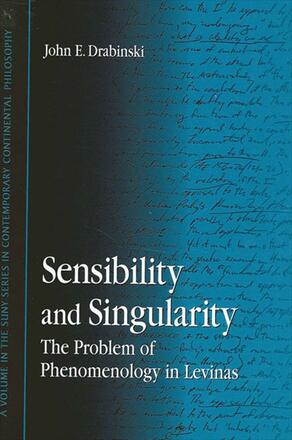
Sensibility and Singularity
The Problem of Phenomenology in Levinas
Alternative formats available from:
Establishes the importance of Husserl's phenomenology for Levinas's ethics.
Description
Is Emmanuel Levinas a dismissive critic of Husserlian phenomenology, or an important member of its movement? The standard account of Levinas's work assumes his distance from Husserl. In opposition to this account, Sensibility and Singularity contends that Husserl was a vital, living resource for Levinas throughout his philosophical career. The singularity of the Other is the centerpiece of Levinas's thought. The philosophical significance of this singularity, however, cannot be fully appreciated without attending to Levinas's transformation of the Husserlian themes of time, materiality, intentionality, and sense. This book documents those transformations and establishes their centrality to Levinas's notion of ethics. What emerges from this reading is a thorough account of Levinas's constant and productive debate with the Husserlian tradition of phenomenology.
John E. Drabinski is Visiting Assistant Professor of Philosophy at Grand Valley State University, Michigan.
Reviews
"John Drabinski presents a careful and much needed study of Levinas's persistant and problematic preoccupation with the phenomenology of Edmund Husserl. Levinas was not only one of the most profound and influential expositors of phenomenology, but his ethical challenge to it is even more important than Heidegger's ontological revision of it. This is required reading." — Richard A. Cohen, author of Elevations: The Height of the Good in Rosenzweig and Levinas
"This is the first sustained and systematic attempt to work out the significance of Husserl's phenomenology for Levinas's thought, together with the significance of Levinas's critical appropriation of this 'phenomenology' for his own thought. It is both original and very promising." — Burt Hopkins, author of Intentionality in Husserl and Heidegger: The Problem of Original Method and Phenomenon of Phenomenology